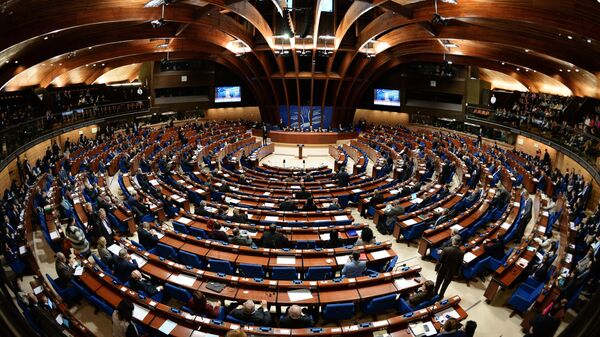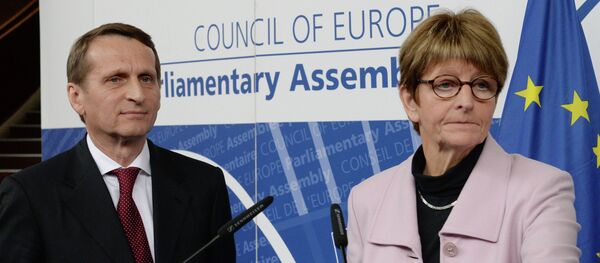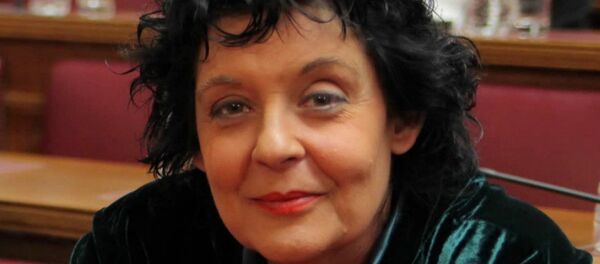PACE stripped Russia of its accreditation April 2014 in response to Crimea's reunification with Russia and the start of the Ukraine crisis, prompting the Russian delegation to quit. At a January session, the Assembly voted to prolong restrictions against Russia.
"Not this year," Stefan Schennach said when asked whether all the rights of the Russian delegation could be restored this year.
He added that the rights of the Russian delegation could be restored in January, when a new vote on the issue will be held.
Schennach stressed that the PACE monitoring committee has 21 preconditions for Russian return, including communicating with Ukrainian pilot Nadezhda Savchenko, detained in Russia on suspicion of killing Russian journalists, and PACE visit to Crimea.
He pointed out that despite the Russian delegation’s absence, communication between Russia and PACE this year is necessary.
Earlier, Alexei Pushkov, head of the Russian State Duma foreign affairs committee, did not rule out the possibility that the Russian delegation could attend the PACE January 2016 session to submit an application for new credentials.
On Monday, Sergei Naryshkin, speaker of Russia's lower parliamentary house, said Russia would return to PACE only after its credentials are fully restored.
PACE was established in 1949 and prior to 1974 was known as the Consultative Assembly of the Council of Europe (CoE). It includes representatives from the parliaments of 47 CoE member states.
Russia joined PACE in 1996. The Russian Federal Assembly PACE delegation has a quota of 18 seats, 12 for Russia's lower parliamentary house and six for its higher.



